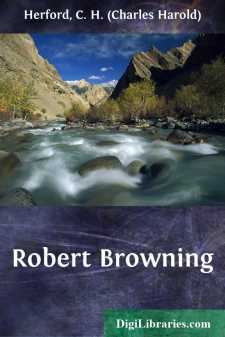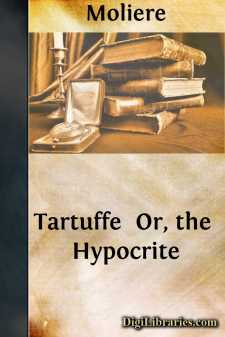Categories
- Antiques & Collectibles 13
- Architecture 36
- Art 48
- Bibles 22
- Biography & Autobiography 813
- Body, Mind & Spirit 142
- Business & Economics 28
- Children's Books 13
- Children's Fiction 10
- Computers 4
- Cooking 94
- Crafts & Hobbies 4
- Drama 346
- Education 46
- Family & Relationships 57
- Fiction 11828
- Games 19
- Gardening 17
- Health & Fitness 34
- History 1377
- House & Home 1
- Humor 147
- Juvenile Fiction 1873
- Juvenile Nonfiction 202
- Language Arts & Disciplines 88
- Law 16
- Literary Collections 686
- Literary Criticism 179
- Mathematics 13
- Medical 41
- Music 40
- Nature 179
- Non-Classifiable 1768
- Performing Arts 7
- Periodicals 1453
- Philosophy 64
- Photography 2
- Poetry 896
- Political Science 203
- Psychology 42
- Reference 154
- Religion 513
- Science 126
- Self-Help 84
- Social Science 81
- Sports & Recreation 34
- Study Aids 3
- Technology & Engineering 59
- Transportation 23
- Travel 463
- True Crime 29
Sort by:
CHAPTER I. EARLY LIFE. PARACELSUS. The Boy sprang up ... and ran,Stung by the splendour of a sudden thought.— A Death in the Desert. Dass ich erkenne, was die WeltIm Innersten zusammenhält.— Faust. Judged by his cosmopolitan sympathies and his encyclopædic knowledge, by the scenery and the persons among whom his poetry habitually moves, Browning was one of the least insular of English...
more...
Bernardino Pintoricchio (1454-1513) n looking at pictures of the old masters you will often see one called the "Holy Family." I want you to know who belonged to the Holy Family. The grown people are Joseph and Mary, the father and mother of Jesus; they had no last names at that time. The children are Jesus and his cousin, John the Baptist, six months older than Jesus. Sometimes the little...
more...
by:
Henry Clay
Part 1 Henry Clay, "On the Expunging Resolutions," U.S. Senate, 16 January 1837 Mr. President: WHAT patriotic purpose is to be accomplished by this Expunging resolution? What new honor or fresh laurels will it win for our common country? Is the power of the Senate so vast that it ought to be circumscribed, and that of the President so restricted that it ought to be extended? What...
more...
by:
William Blake
INTRODUCTION Piping down the valleys wild, Piping songs of pleasant glee, On a cloud I saw a child, And he laughing said to me: "Pipe a song about a Lamb!" So I piped with merry cheer. "Piper, pipe that song again;" So I piped: he wept to hear. "Drop thy pipe, thy happy pipe; Sing thy songs of happy...
more...
CHAPTER I ASSYRIAN HISTORIANS AND THEIR HISTORIES To the serious student of Assyrian history, it is obvious that we cannot write that history until we have adequately discussed the sources. We must learn what these are, in other words, we must begin with a bibliography of the various documents. Then we must divide them into their various classes, for different classes of inscriptions are of varying...
more...
by:
George Pearson
CHAPTER I Polygon Wood Ypres and Hill 60—Preparing for the Gas—Why the Patricias Cheered—The Retirement—The Thin Red Line. The Princess Patricias had lain in Polygon Wood since the twentieth of April, mid-way between the sanguinary struggles of St. Julien and Hill 60, spectators of both. Although subjected to constant alarm we had had a comparatively quiet time of it, with casualties that had...
more...
CHAPTER I. washington receives cheering news from greene—siege of fort ninety-six—success of partisan corps elsewhere—capture of augusta by the americans—rawdon approaches ninety-six—greene abandons the siege—rawdon retires to orangeburg followed by greene—greene encamps on the high hills of santee—stewart and cruger at orangeburg—rawdon goes to england—battle at eutaw...
more...
by:
William Haslam
CHAPTER 1 The Broken Nest, 1841. At the time in which this history begins, I had, in the providence of God, a very happy nest; and as far as temporal prospects were concerned, I was provided for to my liking, and, though not rich, was content. I had taken my degree; was about to be ordained; and, what is more, was engaged to be married; in order, as I thought, to settle down as an efficient country...
more...
by:
Moliere
ACT I SCENE I MADAME PERNELLE and FLIPOTTE, her servant; ELMIRE, MARIANE, CLEANTE, DAMIS, DORINE MADAME PERNELLE Come, come, Flipotte, and let me get away. ELMIRE You hurry so, I hardly can attend you. MADAME PERNELLE Then don't, my daughter-in law. Stay where you are. I can dispense with your polite attentions. ELMIRE We're only paying what is due you,...
more...
by:
Thomas Runciman
I.Though here fair blooms the rose and the woodbine waves on high,And oak and elm and bracken frond enrich the rolling lea,And winds as if from Arcady breathe joy as they go by,Yet I yearn and I pine for my North Countrie.I leave the drowsing south and in dreams I northward fly,And walk the stretching moors that fringe the ever-calling sea;And am gladdened as the gales that are so bitter-sweet go...
more...











